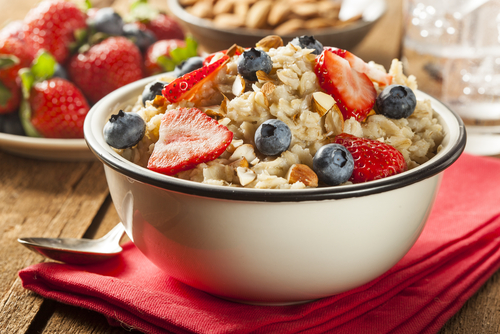Trying to balance the hectic schedule of the work week and demands of family life can be quite taxing. We feel stressed out which causes fatigue and weakness in the body. Fatigue in simple words is a feeling of extreme weariness, tiredness or lack of energy which does not go away easily when we rest. Fatigue could be a normal response to the physical exertion, our poor eating habits, boredom and emotional stress. In some cases, fatigue turns out to be a sign of an underlying medical problem, and if it is not relieved by enough sleep then you should seek medical help.
What causes fatigue?
Chronic fatigue syndrome – This is a complicated disorder characterized by fatigue. Its another name is myalgic encephalomyelitis or ME. It is a severe and disabling tiredness which could go on for at least six months. Other symptoms include sore throat, muscle or joint pain and headache.
Lack of sleep– The most common cause of fatigue is when we do not get enough sleep. Studies state a baby needs 16 hours of sleep a day, teenagers need nine hours, adults need 7-8 hours at night and others need as little as five to ten hours of sleep. The older we get less sleep we need. Sleep apnea is another cause of fatigue. In this disorder, a person faces breathing problems many times during the night. So obviously each interruption disrupts sleep, which makes the person sleep deprived, and being sleep deprived makes us tired and fatigue sets in eventually.
Also read:Rejuvenate Your Body through Yoga
Eating– Our eating habits can also be the cause of fatigue. Not eating much or having wrong foods can be problematic. One should follow a fatigue diet, which will be explained later in this write-up.
Urinary tract infections-Urinary tract infection leads to burning pain and frequent urination, but the infection does not always cause such obvious symptoms. Fatigue can only be the sign. Antibiotics can be given to cure UTI, and tiredness and fatigue will subside.
Underactive thyroid– Having an underactive thyroid gland is a sign of deficiency of the thyroid hormone in our body. This is the reason we often feel tired. It’s most common in women as compared to men. This condition can increase one’s weight slightly and also produce an aching sensation in the muscles.
Diabetes– Feeling tired is a telling sign of diabetes. Other symptoms include feeling very thirsty, weight loss and frequent urination.
Other medical conditions that may cause fatigue are Anaemia, Glandular fever, Depression, Restless legs and Anxiety. It is really important to understand the reason behind fatigue. Once you are aware of the factors which contribute to fatigue, next step becomes addressing the underlying reason to get your life back on track.
Seek medical assistance as soon as possible and take best medication for fatigue as prescribed by the physician. Apart from that, studies show that dietary habits also play a vital role in healthy life. Managing your diet is all you need for a smooth and easy going life.
Also read: How Can You Beat Your Diabetes?
Dietary tips for fighting fatigue:
- What’s most important is to stay hydrated, as a dehydrated body functions less efficiently. Drink plenty of water in a day to fight fatigue.
- Foods tend to boost the metabolism and give the body energy to function. Our brain depends on glucose for fuel so those feeling tiredness or fatigue, should choose carbohydrate rich foods in breakfast like cereals or whole grain bread.
- Avoid overeating, as sometimes large meals drain energy levels. What you can do is to eat six mini meals instead of three big meals as this will spread the kilojoule intake more evenly. Also, it will result in more constant blood sugar and insulin levels. You can also shed some excess body fat if you eat this way.
Here is a list of foods which help to a great extent in the fight against fatigue. Fatigue diet, to be added to the daily plan includes:
Oatmeal– Oatmeal is a food which is not low on the glycemic index, but is regarded as a super food that supports our digestive health. They tend to maintain normal blood sugar levels which is why many nutritionists encourage diabetic patients to eat oatmeal. We know carbohydrates spend the least amount of time in our stomach, giving us a quick energy boost. But unlike processed sugary cereals, oats do not lead to glucose crash. The fiber present in oatmeal makes our tummy feel full for longer which prevents overeating as overeating is responsible for weight gain and fatigue. Fiber is also beneficial for healthy digestion as the soluble fiber present in oatmeal feeds important bacteria in the digestive tract, thereby preventing energy draining constipation.
Yogurt– Yogurt is another health food which has protein and gut healthy probiotics, which are good for health. Yogurt is a great source of quick energy because our body processes it faster than any other solid food. Probiotics are beneficial and healthy bacteria which help maintain a healthy gut ecosystem and protect against pathogens. This helps the body eliminate harmful bacteria. Studies report that probiotics are very effective to ease symptoms of chronic fatigue syndrome. Yogurt is versatile and is found to be a good afternoon or pre-workout snack, providing energy fast.
Nuts and seeds– These are great health foods that are high in protein and omega-3 fats. Depending on the types of nuts and seeds, you can get a decent amount of minerals like manganese, magnesium, iron, copper and vitamins such as B1, B2, B5, and B6 and tryptophan. Pumpkin seeds, almonds, cashews and hazelnuts are all good sources of magnesium that fight muscle fatigue. Nuts and seeds eaten daily give numerous health benefits.
Beetroot– Beetroot is another good food for health as the compounds present in it help to dilate blood vessels, bringing more oxygen into the muscles. This way body stamina improves and you can work out for longer. Drinking beetroot juice benefits as much as eating healthy vegetables does.
Chestnuts– Chestnuts are quite rich in fiber and starchy carbohydrates, providing great energy to the body. They are low in fats and lower in calories as compared to other nuts like almonds and cashews. Try roasting chestnuts with a coating of honey or use along with stuffing for great taste.
Matcha– Instead of drinking coffee try matcha, which is made from tea grown in the shade, dried and then finally powdered. It helps calm the central nervous system due to the presence of antioxidants and l-thianine (an amino acid). For fighting stress and anxiety throughout the day, add powdered matcha to a smoothie.
Also read: Make yourself Healthy with a Vegan diet
Some sleeping tips for fighting fatigue:
Get enough sleep– Watching television till late in the night means fewer hours spent sleeping. The human body needs about 7-8 hours of sleep to remain energized throughout the day.
Limit caffeine– Drinking too much caffeine during the evening can cause insomnia. It is recommended to limit caffeinated drinks to the bare minimum for better sleep during night.
Learn to relax– When it’s time to sleep, stop thinking about things that could bother you. Learn to stay relaxed. Try some low chanting or focus on breathing for a better sleep.
Also read: Born to Fly: Break the Chains of Stress
Lifestyle tips for fighting fatigue:
Do not smoke– Cigarettes contain harmful substances. This is why smokers have low energy levels. Avoid smoking for living a better healthy life.
Physical activity– Physical activities boost energy levels, whereas a sedentary lifestyle tends to cause fatigue. Regular physical activities keep both body and mind in good shape.
Limit alcohol consumption– Those who drink alcohol in excess or use drugs live unhealthy life. This is also a cause of fatigue.
Workplace problems– The daily workload, pressure, demanding deadlines and conflicts at the job place contribute to fatigue. One should not think too much about all these factors and try to focus the mind on other things like reading or listening to music.
Also read: Quit Smoking the Easy Way




